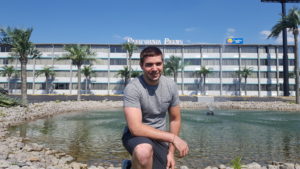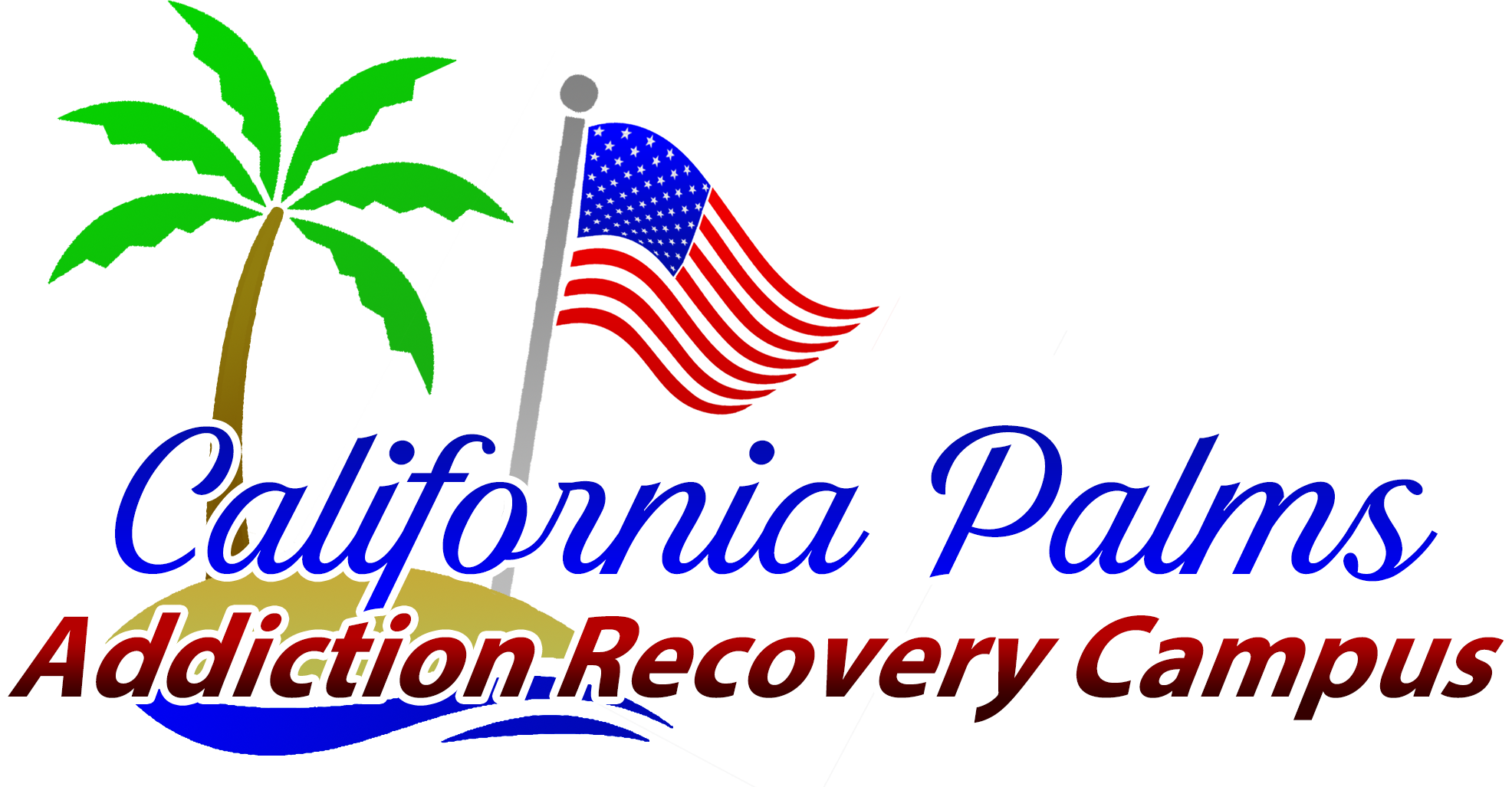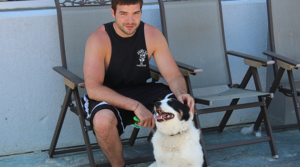The primary objective of the Marine Corp Substance Abuse Combat Center (SACC) Program is to promote readiness, health and wellness through the prevention and treatment of substance misuse and abuse. The SACC Program is designed to identify risk factors and help individuals avoid hazardous substance use before it causes significant damage to their health and career.
FREE TRAVEL TO AND FROM OUR LUXURY REHAB CENTER
The SACC Program offers:
Substance abuse awareness outreach: Briefings offered to ensure members of the community understand the definitions and risks of hazardous substance use as well as available options for seeking help.
Substance Use Assessment: Comprehensive evaluation of substance use covers demographic, family, social, behavioral, psychological, spiritual and medical factors. Standardized questionnaires are combined with a clinical interview to identify risk factors and to make recommendations for treatment or prevention services.
 Alcohol Brief Counseling: Alcohol Brief Counseling includes an individualized consultation to provide feedback from the assessment and develop a personalized change plan. Education is provided on DoD substance use policy. Alcohol brief counseling may also include modules on values clarification, anxiety or anger management, assertive communication, healthy thinking, sleep enhancement, and relaxation.
Alcohol Brief Counseling: Alcohol Brief Counseling includes an individualized consultation to provide feedback from the assessment and develop a personalized change plan. Education is provided on DoD substance use policy. Alcohol brief counseling may also include modules on values clarification, anxiety or anger management, assertive communication, healthy thinking, sleep enhancement, and relaxation.
Substance abuse treatment services (group/individual): Individual and group treatment services are provided to individuals who are addressing substance abuse or dependency issues. Referrals to higher levels of substance abuse treatment, such as intensive outpatient treatment or inpatient treatment, will also be provided when needed.
Other resources include: Initial civilian employee assessment for work-related misconduct that is related to substance use, as well as referrals for treatment, education and prevention classes. Family programs, including individual and group counseling sessions. Civilian supervisor training, first duty station and key-personnel briefings.
Alcohol Misuse.
 The Marine Corp policy recognizes that alcohol misuse negatively affects public behavior, duty performance, and/or physical and mental health. The Marine Corp provides comprehensive clinical assistance to eligible beneficiaries seeking help for an alcohol problem.
The Marine Corp policy recognizes that alcohol misuse negatively affects public behavior, duty performance, and/or physical and mental health. The Marine Corp provides comprehensive clinical assistance to eligible beneficiaries seeking help for an alcohol problem.
Illicit Drug Use. The Marine Corp does not tolerate the illegal or improper use of drugs by Marine Corp personnel. Such use: Is a serious breach of discipline. Is incompatible with service in the Marine Corp. Automatically places the member's continued service in jeopardy. Can lead to criminal prosecution resulting in a punitive discharge or administrative actions, including separation or discharge under other than honorable conditions.
SACC Program Overview.
 The primary objectives of the SACC Program are to promote readiness, health, and wellness through the prevention and treatment of substance misuse and abuse, to minimize the negative consequences of substance misuse and abuse to the individual, family, and organization, to provide comprehensive education and treatment to individuals who experience problems attributed to substance misuse or abuse, to restore function and return identified substance abusers to unrestricted duty status or to assist them in their transition to civilian life, as appropriate.
The primary objectives of the SACC Program are to promote readiness, health, and wellness through the prevention and treatment of substance misuse and abuse, to minimize the negative consequences of substance misuse and abuse to the individual, family, and organization, to provide comprehensive education and treatment to individuals who experience problems attributed to substance misuse or abuse, to restore function and return identified substance abusers to unrestricted duty status or to assist them in their transition to civilian life, as appropriate.
These objectives are met through four levels of activities: Universal (Primary) Prevention and Education: This includes population-based outreach, education, prevention programs, screening, and consultation. Community based prevention and education efforts will be delivered by SACC staff through coordinated efforts with other community agencies.
Selective (Targeted) Prevention: This involves global screenings for alcohol misuse, as well as initiatives to prevent future alcohol misuse, prescription drug misuse, or drug use with individuals who are identified as high risk or are suspected of substance misuse. Selective prevention includes screening, assessment, education, brief preventive counseling, and tailored feedback in specific individuals or groups identified as moderate to high risk.
Indicated Prevention: This is indicated for those who are engaging in risky drinking but have not yet developed problems associated with their drinking. Individuals in this group can be identified through screening in primary care or other appropriate setting. The majority of these individuals are best served through motivational interviewing and brief advice. This focuses on those who are already in the early stages of alcohol and substance use.
Treatment and Continuing Care (Aftercare): Provide evidence-based substance use disorder treatment for individuals who are abusing or are dependent on alcohol or drugs that follows the clinical practice guidelines. The primary aim should be restoring function, improving quality of life, and returning members to productive and unrestricted duty, or to assist them in their transition to civilian life, as appropriate.
Use of Evidence-Based Services.
SACC Program will provide evidence-based substance use disorder services that adhere to this instruction, clinical practice guidelines, as well as other DoD/Veterans Affairs sanctioned task force and/or accredited professional organizations specializing in the treatment of substance use disorders.
Substance Misuse Prevention Strategies.
Substance misuse prevention efforts are geared toward enhancing individual and unit resiliency, both of which can be compromised by hazardous alcohol use and SUDs. Prevention strategies must be comprehensively structured to educate and inform the overall population as well as specifically target higher risk populations.
In collaboration with other Integrated Delivery System members, the SACC staff works to develop and implement prevention programs geared towards increasing organizational and individual awareness of SUD issues, including misuse and abuse of prescription medications, illegal and illicit drug abuse, trends, and threat to mission readiness.
Patient Assessment.
Treatment or prevention counseling for all patients should be based on thorough assessment (e.g. Substance Use Assessment Tool, clinical interview, and collection of collateral data as appropriate), determination of risk, and should be tailored for the individual.
Evaluation for specialty treatment requires a thorough biopsychosocial assessment that adheres to evidence based clinical practice guidelines from VA/DoD. The initial assessment in SACC is the Substance Use Assessment Tool Intake/Assessment. Information from the Substance Use Assessment Tool intake is utilized to make treatment recommendations.
When treating SACC patients, providers and technicians must do a complete review of the individual's medical history, including a thorough medication reconciliation. This can help providers uncover potential poly-substance abuse disorders, identify drug-seeking behaviors, and target therapy appropriately. Throughout treatment, providers should periodically monitor any changes in the patient's medical diagnoses or medication regimen in order to identify unrecognized prescription medication abuse.
Detoxification.
Patients being referred for inpatient treatment will be assessed to determine the level of detoxification services required. When medically indicated, patient detoxification will be managed on an outpatient basis prior to inpatient or residential treatment. Patients assessed as requiring medically managed detoxification (inpatient) will be entered into an appropriate medical facility. All patients must have 72 hours of monitored abstinence (inpatient or outpatient) prior to departure from detoxification.
Continuity of Care in Treatment.
SACC Program staff will communicate with the inpatient treatment facility to ensure continuity of care. Inpatient treatment may begin immediately, if the history, physical examination, and other documentation indicate that the patient can safely begin treatment. If, however, the patient experiences symptoms of apparent withdrawal, he or she will be re-assessed and a detoxification protocol initiated.
Considerations following Treatment Completion.
At a minimum, a relapse prevention plan will be created (or reviewed if created prior to discharge) and agreed upon. Suicide risk will also be assessed at this visit and a follow-up visit will be scheduled. Patients discharged from inpatient residential will be monitored over a sufficient period of time.
Patients returning from an IOP, residential/inpatient treatment facility will have a meeting within 14 calendar days of return to assess the patient's progress during inpatient or residential treatment and design a continuing care (aftercare) plan.
Decisions regarding continuing care (aftercare) services will be based on a current assessment of status and will include establishment of a continuing care treatment plan identifying specific goals, interventions, and means to assess interventions.
Use of pharmacological treatments, such as Naltraxone, Disulfiram, Acamprosate, etc., will be strictly monitored by the psychiatrist or physician who has prescribed the medication. The SACC Program staff will communicate with all providers to ensure continuity of treatment.
Long-Term Inpatient/Residential Substance Use Treatment. Whenever possible and appropriate, military inpatient or residential substance use treatment facilities will be used for service members for long-term treatment.
Continuing Care (Aftercare) Program.
 Upon completion of the treatment section of the SACC Program (e.g. Outpatient, IOP, PHP, etc.), the member will begin a period of continuing care (aftercare).
Upon completion of the treatment section of the SACC Program (e.g. Outpatient, IOP, PHP, etc.), the member will begin a period of continuing care (aftercare).
All patients who completed treatment will participate in continuing care (aftercare) as part of the SACC Program. Continuing care (aftercare) does not begin until all goals of the treatment plan are met. Once these goals are met, the patient is moved into continuing care (aftercare).
Continuing Care (Aftercare) requirements.
Patient's progress will be monitored by the SACC staff at least every 30 days while the patient is in continuing care (aftercare). The goal of continuing care is to ensure any new goals are addressed, the patient does not need to be returned to treatment, and a relapse prevention plan is implemented and proceeding smoothly.
The with a drug history undergo monthly random drug testing for one year following their most recent discharge from a treatment program.
Program Completion.
 Program Completion. Patients will not be considered to have successfully completed the SACC Program until the patient has completed treatment and continuing care (aftercare). The TT determines, based on VA/DoD Clinical Practice Guidelines for Management of Substance Use Disorders, current DSM criteria and ASAM PPC, patient's progress towards agreed upon goals and/or issues as stated in the treatment and continuing care (aftercare) plans, when the patient no longer requires program resources.
Program Completion. Patients will not be considered to have successfully completed the SACC Program until the patient has completed treatment and continuing care (aftercare). The TT determines, based on VA/DoD Clinical Practice Guidelines for Management of Substance Use Disorders, current DSM criteria and ASAM PPC, patient's progress towards agreed upon goals and/or issues as stated in the treatment and continuing care (aftercare) plans, when the patient no longer requires program resources.
The Marine Corp determines, based on VA/DoD Clinical Practice Guidelines for Management of Substance Use Disorders, current DSM criteria and ASAM PPC, patient's progress towards agreed upon goals and/or issues as stated in the treatment and continuing care (aftercare) plans, when the patient no longer requires program resources.
Call (330) 935-2663
 We accept insurance from Veterans Choice, Cigna, Aetna, Blue Cross & Blue Shield, Humana, and Medical Mutual. Payments plans from Prosper Healthcare Lending or My Treatment Lender. Travel to/from our Location may be covered by various sources. Contact the CALIFORNIA PALMS at (800) 378-8259
We accept insurance from Veterans Choice, Cigna, Aetna, Blue Cross & Blue Shield, Humana, and Medical Mutual. Payments plans from Prosper Healthcare Lending or My Treatment Lender. Travel to/from our Location may be covered by various sources. Contact the CALIFORNIA PALMS at (800) 378-8259
Marine Corps substance abuse treatment program location. We treat Marine Corps and Marine Corps Veterans for Drug Addiction Alcohol Addiction and Residential PTSD treatment centers. Marine Corps Bases, Insignia Installation Location, Seal of Marine Corps Base Camp Pendleton.png, Marine Corps Base Camp Pendleton, Oceanside, California, MAGTFTC.png, Marine Corps Air Ground Combat Center Twentynine Palms, Twentynine Palms, California, Mclb barstow insig.png, Marine Corps Logistics Base Barstow, Barstow, California, MCRD WRR small.jpg, Marine Corps Recruit Depot San Diego, San Diego, California, Mountain Warfare Training Center insignia.png, Mountain Warfare Training Center, Bridgeport, California, Mclblogo.gif, Marine Corps Logistics Base Albany, Albany, Georgia, MCB Hawaii.jpg, Marine Corps Base Hawaii, Kane'ohe Bay, Hawaii, 1st Marine Corps District, Garden City, New York, Garden City, New York, Seal of MCB Camp Lejeune.png, Marine Corps Base Camp Lejeune, Jacksonville, North Carolina, Marine Corps Recruit Depot, Parris Island logo.jpg, Marine Corps Recruit Depot Parris Island, Beaufort, South Carolina, Seal of Marine Corps Base Quantico.png, Marine Corps Base Quantico, Quantico, Virginia, Henderson hall logo.jpg, Henderson Hall, Arlington, Virginia, MBW logo.jpg, Marine Barracks, Washington, D.C., Washington, D.C., Satellite Bases[edit], Insignia Installation Location, Blount Island Command Logo.png, Blount Island Command, Marine Corps Logistics Base Albany, Jacksonville, Florida, No image.png, Camp H. M. Smith, Marine Corps Base Hawaii, ?Aiea, Hawaii, Camp Geiger, Marine Corps Base Camp Lejeune, Jacksonville, North Carolina, Logomccsss.jpg, Camp Gilbert H. Johnson, Marine Corps Base Camp Lejeune, formerly known as "Montford Point", Jacksonville, North Carolina, No image.png, Courthouse Bay, Marine Corps Base Camp Lejeune, Jacksonville, North Carolina, LogoWTBn.jpg, Stone Bay, Marine Corps Base Camp Lejeune, Jacksonville, North Carolina, No image.png, Camp Allen, Naval Station Norfolk, formerly known as "Camp Elmore", Norfolk, Virginia, Marine Corps Air Stations[edit], Insignia Installation Location, Mcas yuma.jpg, Marine Corps Air Station Yuma, Yuma, Arizona, MCAS Miramar Emblem.jpg, Marine Corps Air Station Miramar, Miramar, California, MCAS Pendleton insignia.gif, Marine Corps Air Station Camp Pendleton, Oceanside, California, MCAF Kaneohe Bay logo.jpg, Marine Corps Air Station Kaneohe Bay, Kane'ohe Bay, Hawaii, MCAS CPoint.jpg, Marine Corps Air Station Cherry Point, Havelock, North Carolina, Air station new river.svg, Marine Corps Air Station New River, Jacksonville, North Carolina, Mcasbeaufort.jpg, Marine Corps Air Station Beaufort, Beaufort, South Carolina, Satellite Aviation Facilities[edit], Insignia Installation Location, No image.png, Marine Corps Outlying Field Atlantic, Marine Corps Air Station Cherry Point, Atlantic, North Carolina, Boguerat3.png, Marine Corps Auxiliary Landing Field Bogue Field, Marine Corps Air Station Cherry Point, Bogue, North Carolina, No image.png, Marine Corps Outlying Field Camp Davis, Marine Corps Base Camp Lejeune, Holly Ridge, North Carolina, Mcas quantico.jpg, Marine Corps Air Facility Quantico, Marine Corps Base Quantico, Quantico, Virginia, Marine Corps Detachments[edit], Insignia Installation Location, MATSG-21 insignia.jpg, Marine Aviation Training Support Group 21, Naval Air Station Pensacola, Warrington, Florida, MAG-22insignia.gif, Marine Aviation Training Support Group 22, Naval Air Station Corpus Christi, Corpus Christi, Texas, MATSG-23 insignia.gif, Marine Aviation Training Support Group 23, Naval Air Station Pensacola, Warrington, Florida, MATSG-33insignia.jpg, Marine Aviation Training Support Group 33, Naval Air Station Oceana, Virginia Beach, Virginia, MATSG-53 insignia.jpg, Marine Aviation Training Support Group 53, Naval Air Station Whidbey Island, Oak Harbor, Washington, Mad cl logo.gif, Marine Aviation Detachment, Naval Air Weapons Station China Lake, China Lake, California, MADPatch9.jpg, Marine Aviation Detachment, Naval Air Station Patuxent River, Patuxent River, Maryland, No image.png, Marine Corps Detachment, Fort Sill, Lawton, Oklahoma, No image.png, Marine Corps Detachment, Fort Huachuca, Huachuca City, Arizona, No image.png, Marine Corps Detachment, Defense Language Institute, Monterey, California, MCD Corry Station.gif, Marine Corps Detachment, Corry Station Naval Technical Training Center, Pensacola, Florida, MCD Fort Gordon.jpg, Marine Corps Detachment, Fort Gordon, Augusta, Georgia, No image.png, Marine Corps Detachment, Fort Benning, Columbus, Georgia, USMC Fort Knox detachmentlogo.PNG, Marine Corps Detachment, Fort Knox, Louisville, Kentucky, MCD APG.jpg, Marine Corps Detachment, Aberdeen Proving Ground, Aberdeen, Maryland, No image.png, Marine Corps Detachment, Fort Meade, Laurel, Maryland, MCD.PNG, Marine Corps Detachment, Fort Leonard Wood, Waynesville, Missouri, No image.png, Marine Corps Detachment, Naval Station Newport, Naval War College, Newport, Rhode Island, MCD Fort Bliss Insignia.jpg, Marine Corps Detachment, Fort Bliss, El Paso, Texas, MCD GAFB.gif, Marine Corps Detachment, Goodfellow Air Force Base, San Angelo, Texas, No image.png, Marine Corps Detachment, Fort Lee, Tri-Cities, Virginia, Marine Corps Reserve[edit], Insignia Installation Location, MarforresLogo.jpg, Headquarters, Marine Forces Reserve, Naval Support Activity, New Orleans, New Orleans, Louisiana, MOBCOM.gif, Marine Corps Individual Reserve Support Activity, Marine Forces Reserve, New Orleans, Louisiana, Naval Air Station Fort Worth (insignia).gif, Marine Corps Reserve Detachment, Naval Air Station Joint Reserve Base Fort Worth, Fort Worth, Texas






